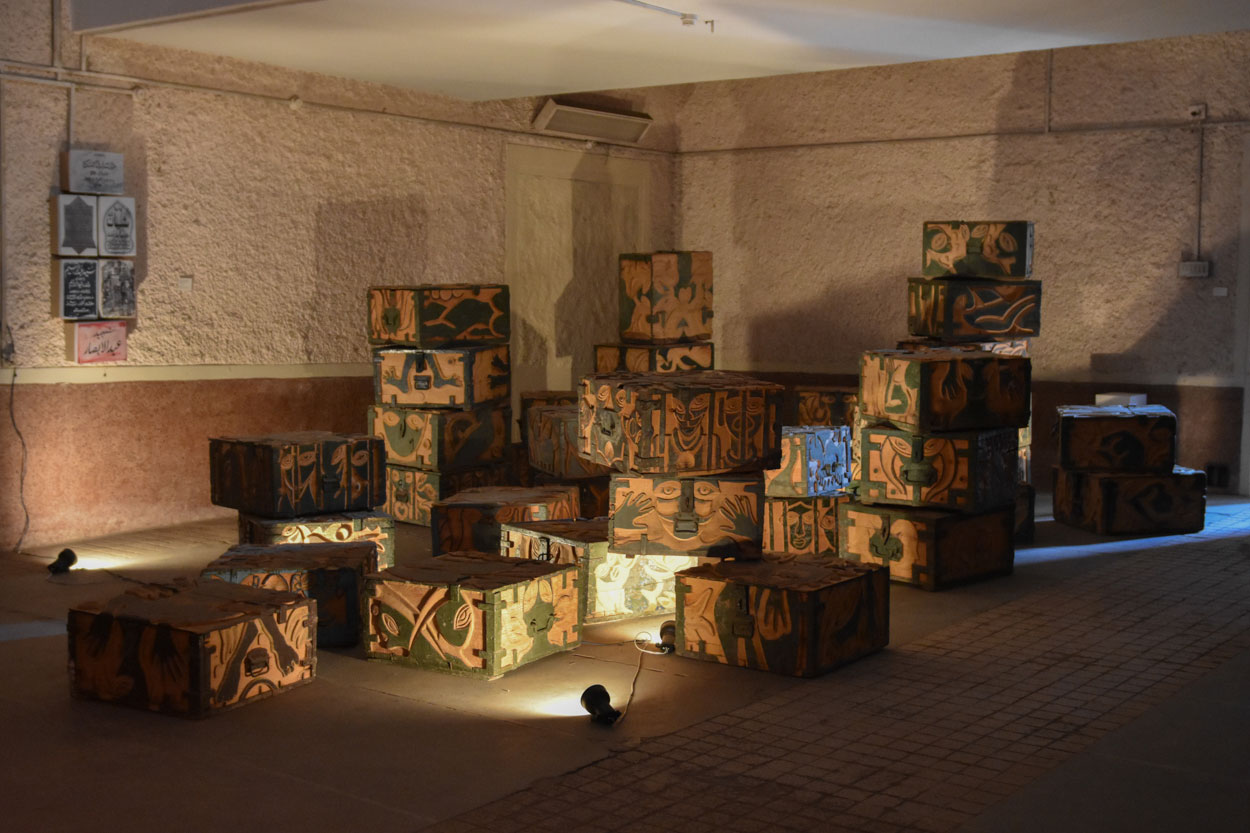Akram Dost Baloch
Born in 1958 in Nushki (Pakistan)
Lives and works in Quetta (Pakistan)
Akram Dost Baloch was born in Nushki, a border town in the south-west of Balochistan province of Pakistan, and received his school education there. He graduated with his BFA from National College of Arts, Lahore, and is among the founding faculty of The Department of Fine Arts, University of Balochistan. He paints and sculpts and the themes of his work are wide ranging, with a heavy focus on human rights. The dominant aesthetics of his work are inspired by the traditional motifs of Balochistan, an area to which he has contributed much himself; Baloch wrote his PhD dissertation on the traditional patterns of Baloch embroidery and handicrafts, and has contributed invaluable items to the collection on Balochistan at the Mohatta Palace Museum in Karachi. Baloch has received wide acclaim, both at home and abroad, and is also the recipient of Pakistan’s President’s Pride of Performance award (2004). He is currently based in Quetta where he runs his studio and chairs The Institute of Fine Arts at University of Balochistan.
Akram Dost Baloch has an installation of 40 wooden boxes that he has carved upon on view at KB17. He writes: “Art for me serves two functions; first comes its redemptive quality, and second, its capacity to bear witness to, and speak for the despairing side of human existence. While the first raises us, it is only with a keen perception of the latter that the aching need for and the requisite perception to find redemption can be attained. Such has been the prime motive for my practice over these many years. My submitted work comprises 40 boxes, all of which I have carved with engraved compositions. The history of these boxes, which I purchased at an auction in Quetta, is a curious one: these were used by the British army for ammunition storage and languished in bunkers and warehouses at the Quetta fort after their departure in 1947. Quetta Fort itself was a military garrison built by the British upon the mound of an extant Qila (fortress) and served as the Raj’s furthermost western military station. The Qila, the British, the ammunition caches, and the cultural and political upheavals that have plagued the region since readily tie into a narrative that is not completely foreign to the themes of my work; their arrival and the legacy of their departure haunt the political, social and cultural developments of the subcontinent to this day.”

Of Yore and Lore, 2017.
Mixed media installation
Dimensions variable
Courtesy the artist

